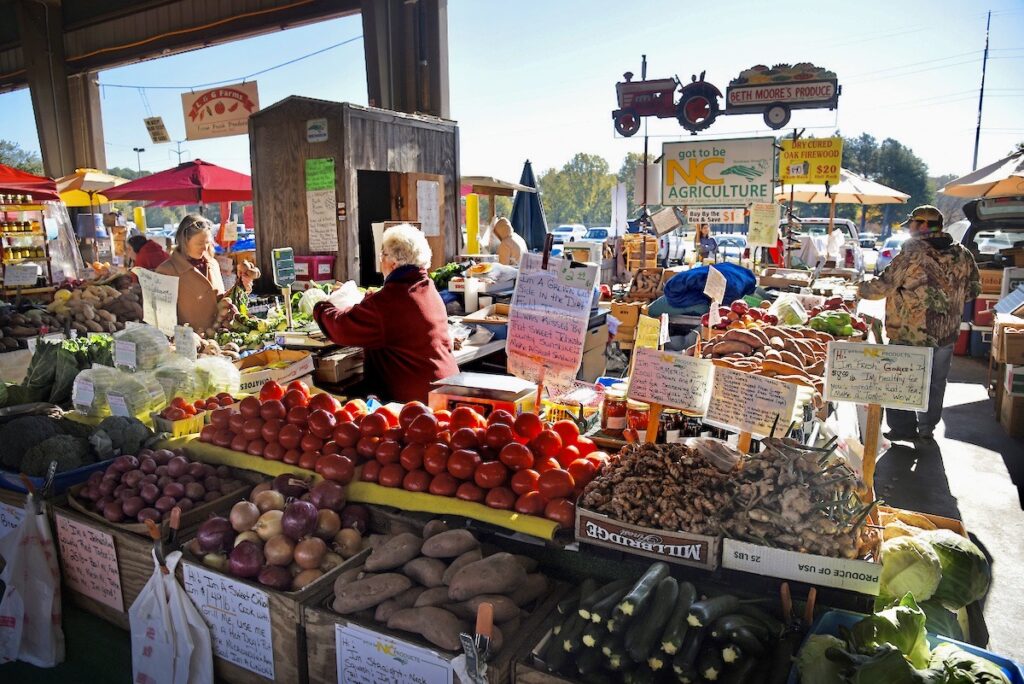Business Planning and Development
go.ncsu.edu/readext?834734
en Español / em Português
El inglés es el idioma de control de esta página. En la medida en que haya algún conflicto entre la traducción al inglés y la traducción, el inglés prevalece.
Al hacer clic en el enlace de traducción se activa un servicio de traducción gratuito para convertir la página al español. Al igual que con cualquier traducción por Internet, la conversión no es sensible al contexto y puede que no traduzca el texto en su significado original. NC State Extension no garantiza la exactitud del texto traducido. Por favor, tenga en cuenta que algunas aplicaciones y/o servicios pueden no funcionar como se espera cuando se traducen.
Português
Inglês é o idioma de controle desta página. Na medida que haja algum conflito entre o texto original em Inglês e a tradução, o Inglês prevalece.
Ao clicar no link de tradução, um serviço gratuito de tradução será ativado para converter a página para o Português. Como em qualquer tradução pela internet, a conversão não é sensivel ao contexto e pode não ocorrer a tradução para o significado orginal. O serviço de Extensão da Carolina do Norte (NC State Extension) não garante a exatidão do texto traduzido. Por favor, observe que algumas funções ou serviços podem não funcionar como esperado após a tradução.
English
English is the controlling language of this page. To the extent there is any conflict between the English text and the translation, English controls.
Clicking on the translation link activates a free translation service to convert the page to Spanish. As with any Internet translation, the conversion is not context-sensitive and may not translate the text to its original meaning. NC State Extension does not guarantee the accuracy of the translated text. Please note that some applications and/or services may not function as expected when translated.
Collapse ▲Writing up a business plan may not be the first thing you think of when you think about starting a farm, but it is a critical step in the process.
First of all, a written business plan is required for receiving farm loans. However, even if you don’t need to borrow money to start a farm, developing a business plan will help clarify your goals and lay out how to achieve them. This can help you make decisions in a way that will best fit yourself and your business. If you come across actions that take too much energy and don’t align with your mission, you can redirect your energy.
A good business plan should include:
- A resume or similar supporting evidence of your relevant experience
- Your business vision and a mission statement
- Information on your legal structure
- A current list of assets and expenses
- Production plans
- Marketing plans
- Projected balance sheet (using information from #4, 5, and 6 above)
- Start up costs (what you want from a prospective lender)
Source: Guy Ames, National Center for Appropriate Technology, formerly of Ames Nursery and Orchard, 1980-2000.
North Carolina Resources & Programs
NC Farm School: NC Farm School is a unique entrepreneurial program for new and transitioning farmers with the mission of increasing the number of successful farmers in North Carolina. This program includes classroom instruction to help farmers develop a written business plan and on-farm excursions for experiential learning. This program has small-scale enterprise templates available online to help farmers develop budgets for their enterprises.
Growing Small Farms: This Extension website lists templates and resources for farm business planning and record keeping.
NC FarmLink :This program of NC State Extension connects farmers, landowners, and service providers across North Carolina, helping to grow the state’s agriculture industry. NC FarmLink maintains databases of available farmland and farmers looking for land, and works with landowners and farmers to ensure an appropriate and lasting match is made.
Getting Into Farming: A Workbook for Beginner Farmers in North Carolina: Resource workbook developed in 2013 by the Bringing New Farmers to the Table Project. Authors: Branan, Andrew, Lee Miller, Marisa Alcorta, Tammy Howard, Hanna Lewis. This resource helps new farmers create a vision and financial plan for their business.
NC New Farmer Toolbox: Toolbox of resources for beginning farmers on the business of farming, including NC focused resources on business planning, accessing capital and credit, land access, marketing and more.
The Farmer’s Guide to Agricultural Credit: Rural Advancement Foundation International. This guide is aimed at helping farmers get ready to ask a lender for the financing needed in new and innovative ventures. When used as part of an overall enterprise development strategy, it can help farmers and lenders achieve mutually beneficial results when they sit down to do business.
North Carolina Small Business Center Network- Confidential Business Counseling: Small Business Centers are located across the state. These Centers have a wealth of information, resources, and expertise to help small businesses. Each Center offers confidential business counseling to help answer your specific questions.
Building a Sustainable Business: A PDF of this SARE publication is available for free online to assist farms and rural businesses develop detailed business plans.



